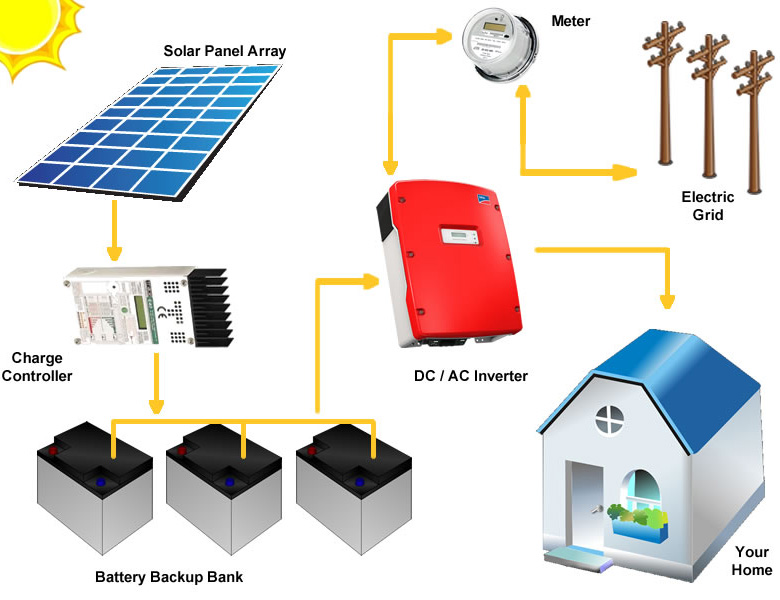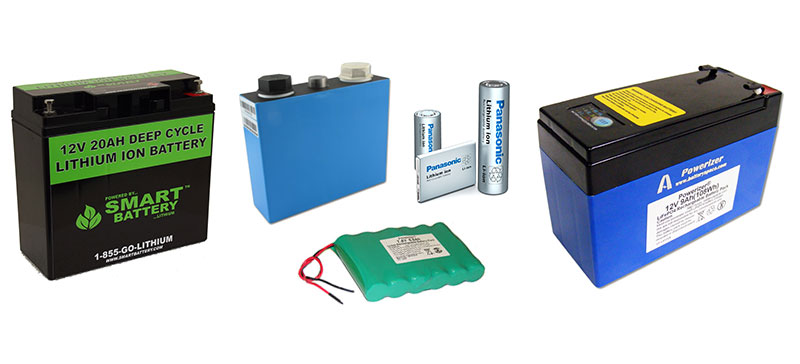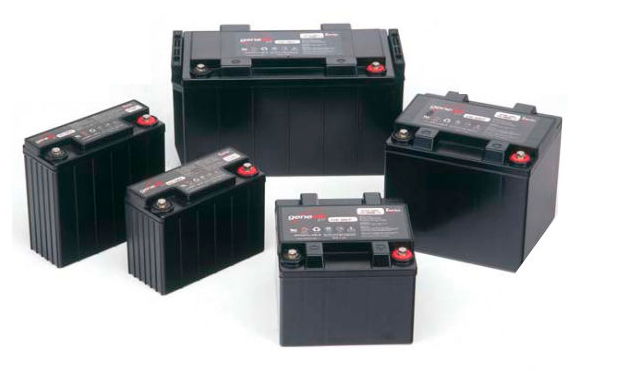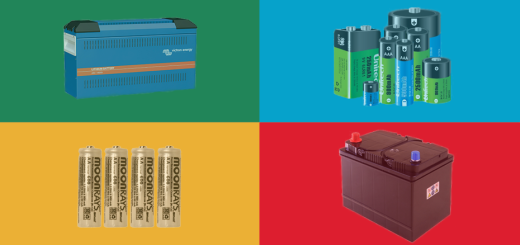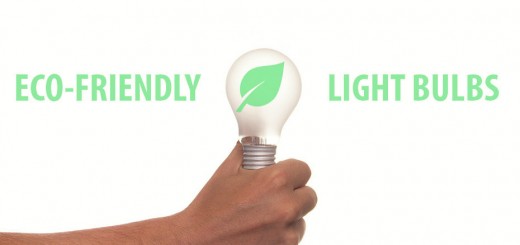Types of Batteries Used for Solar Power Storage
Very slowly but also inevitably solar power is conquering the energy market. Many private house owners as well as large companies have already made their investments in solar panels knowing that within just a few years the technology can pay itself off. Thus more and more people are on their way to join the movement of utilizing alternative (renewable) energy.
Although solar panels actually are not the most complicated of technologies, there are some aspects you should pay attention to and know prior getting on with purchasing and installing your own solar panel. One of the things you should consider is the type of battery that you are going to use to store all the energy that your solar panel will produce. This article will guide you through different types of batteries that are currently available in the market, as well as provide you a brief explanation of what are the advantages/disadvantages of every type.
The idea behind a solar battery
Solar power batteries are the batteries that are being used in solar power system’s battery bank. It is the only way how you can actually store the energy so that you could use it during the time when there is no sunlight to be collected.
Without storing the energy, you would be able to produce and use solar energy only when there is sunlight but not when it’s dark or cloudy. Solar batteries provide constant and uninterrupted level of power which makes the whole idea of collecting sunlight and turning it into energy a lot more practical since it is simply not up to you to tell what weather there will be and how many sunlight you will receive each day. Of course, as you are about to owe your own personal power producing and storing system, the battery certainly is something you cannot just buy and install without any considerations.
Batteries for storing solar power are different and hence it is very useful to know the specifics of at least the most common of the types so that you do not end up spending unreasonable amounts money for a battery which actually does not match your situation and/or needs.
What factors to consider when buying a battery for solar panels?
To make sure that you know what you are actually buying, it is a good idea to keep in mind these three core-principles and feel free to inquire about them to your retailer just to be sure that what you are buying is what you actually need:
- The storage capacity of a solar battery. Very few people like to do math but this time it is quite important for you to do some calculations just to know what storage capacity will be sufficient for your home/lamp post lights/whatever it is that you are running with solar energy. Let’s take a very traditional example to understand how it works. Let’s say you purchase a battery for your solar system that is 12 volts (push) and 105 amp hours (storage capacity). You can estimate how much energy this solar battery will store by calculating the watt hours. For this, you’ll need to multiply the volts (V) x the amp hours (AH) and divide by 100:It means that fully charged battery will store enough energy for 12.6 hours powered on 100 watt appliance.Volts x Amp Hours / 100 = Watt Hours12V x 105AH = 1260 / 100 = 12.6 Watt Hours
- Life expectancy. Another thing that simply cannot be dismissed is the life expectancy of your battery. Of course you want to change your battery as rarely as possible and to calculate how long your battery could last, you have to check the life expectancy rating which usually is rated in numbers of cycles that each battery can perform. A cycle is one time of charging and discharging the battery and “number of cycles” simply means the number of times the battery can be charged and discharged before it stops performing. As with every battery, it will slowly reduce its capacity and it is estimated that a battery is soon to be inefficient when it has lost around 20% of its original capacity.
- Appropriate charge controller. A charge controller is a very crucial part of any solar energy system with batteries that store energy. The charge controller controls the speed at which batteries are being charged and protects them from overcharging.
Types of batteries used for storing solar energy
As said, there are variety of batteries that can be used to store the energy that has been collected from your solar panels but two main types can be distinguished, namely:
- Lead Acid Batteries. These batteries in fact are the first rechargeable batteries that were invented and even until now this is the most popular of options that has been proven to work out the best for different situations. These batteries have the highest capacity, extended life cycle, they can be charged comparatively fast and they waste relatively little energy. However do not forget to be as cautious as you can. Lead acid batteries can store significantly huge amount of electrical energy and they can discharge it very quickly if any form of conductor is put in their terminals.
- Lithium Ion Batteries. In the market of rechargeable batteries, lithium-ion batteries have reached similarly high popularity as lead acid batteries. Compared to other types of batteries, lithium-ion batteries outshine due to their low maintenance, high energy density, low self-discharge rate and long cycle life of lithium phosphate batteries. Thanks to so many advantages that lithium batteries have over any other type of battery, they are now considered to be one of the best options for storing solar energy.
Apart from these two types of batteries that have the widest usage among solar panel owners, there are several other options available:
- Absorbed Glass Mat (AGM) Batteries. AGM batteries contain a thin ultra-fine fiberglass mat which has been placed between the plates that are saturated with battery acid to about 95% of what they can hold. This mat which is packed between the plates, is compressed and after that – welded in place. Some of the main advantages of AGM are the fact that AGMs are capable to deliver high currents on demand, they have very low internal resistance, and they can provide rather long life expectancy, even when deep cycled.
- Gel Cell Batteries. Gelled lead acid batteries were introduced a lot sooner than AGM type but they are actually losing the market share. They have similar advantages over flooded lead acid batteries for example ease of transportation but you have to keep in mind that the gelled electrolyte in these batteries is very viscous.
- Nickel based batteries. Nickel Cadmium (NiCd), Nickel-Metal hydride and Nickel Iron batteries. Nickel based batteries are most know to be produced and used in AA and AAA sizes, but there are also some specific types of these batteries made for storing more energy. However, when compared to lithium-ion or lead acid batteries, nickel based batteries have some known drawbacks such as lower cycle life, high self-discharge rate, lower energy density and memory effect of NiCd battery, making them much less popular option as solar storage.

